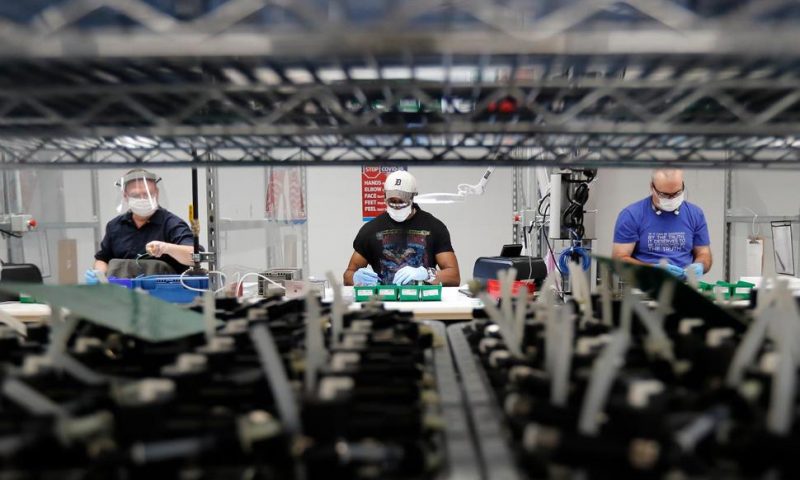U.S. industrial production slowed to a modest increase of 0.4% in August, far weaker than the strong bounce back recorded in previous months when factories were coming back to life.
WASHINGTON — U.S. industrial production slowed to a modest increase of 0.4% in August, far weaker than the strong bounce back recorded in previous months when factories were coming back to life.
The slight uptick followed gains of 3.5% in July and 6.1% in June, when the industrial sector knocked down by the pandemic began to rebound.
For August, manufacturing rose 1% but mining, which includes oil and gas exploration, fell 2.5%, the Federal Reserve reported Tuesday. Production at the nation’s utilities was off 0.4%.
It’s the fourth consecutive monthly increase after COVID-19 sent production plunging in March and April. But even with the gains over the summer, industrial production remains 7.3% below where it was in February, right before economic activity seized up in the pandemic.
Manufacturing last month was clipped by a 3.7% decline in output at auto factories, though there were broad-based increases in industries that make other types of durable goods.
Output at aerospace companies rose 4.2% but remained far below its pre-pandemic level. Paul Ashworth, chief U.S. economist at Capital Economics, said that reflects ongoing problems at Boeing and the collapse of the global travel industry.
Economists said the industrial sector should improve further but a number of risks remain.
“Output will continue to benefit from fuller re-openings,” said Rubeela Farooqi, chief U.S. economist at High Frequency Economics. “”However, weak demand and virus outbreaks that can interrupt activity remain a threat going forward.”
Declines in the mining sector reflected sharp but temporary drops in oil and gas drilling when Tropical Storm Marco and Hurricane Laura forced energy companies to shutter operations in and around the Gulf of Mexico.
U.S. industry operated at 71.4% of capacity in August, 10.3 percentage points above its trough in April, but still 8 percentage points below its long-run average.

